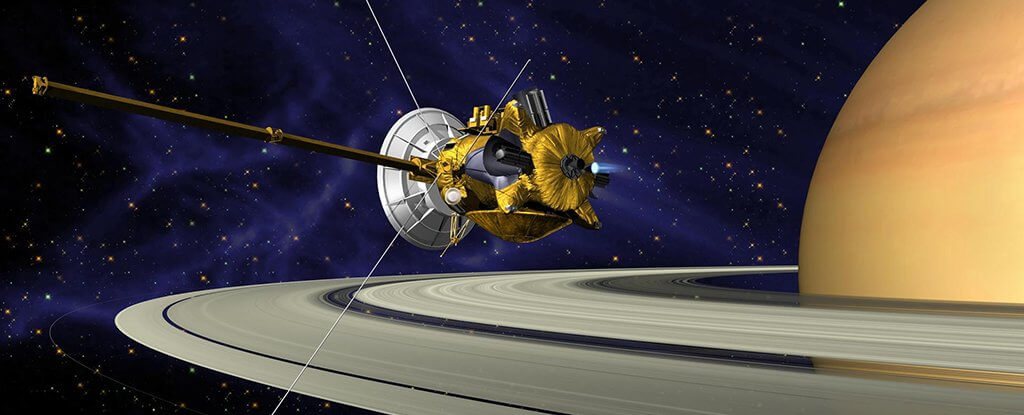
Equipping artificial intelligence of vehicles, which sends mankind to the study of cosmic space, has a logical sense, as the ability to make their own decisions without needing to await further instructions from Earth can significantly speed up the execution of planned missions while improving efficiency. It is therefore not surprising that the space Agency NASA decided to think about how exactly you can implement all of these.
With each decade starts more and more space probes, and it would be nice if some of them could work completely Autonomous, one’s own decisions when doing science after reaching their points of destination. Here just fell way of artificial intelligence.
Steve Chan and Kiri Wagstaff from laboratory of jet movement NASA believe that machines with artificial intelligence could learn on the fly, adapting to the different situations and meeting those phenomena that are inaccessible to our present and even our most powerful telescopes.
“Have the ability to make decisions robotic spacecraft will be able to more effectively how to carry out traditional scientific observations and to resolve the impossible in the current conditions of the problem, as, for example, respond instantly to short-term emissions of steam and other material from the surface of the comet located at a distance of many million kilometers from the Earth,” say the researchers.
One of the obvious advantages of using artificial intelligence will be able to determine the differences between storm and normal weather on distant exoplanets that will make get data about distant worlds is much more useful to scientists on Earth.
Just as Google uses AI to determine cats and dogs in the photos, so the spacecraft is equipped with artificial intelligence will be able to see, for example, the distinction between snow and ice, between flowing and stagnant waters, which will make the resulting scientific data are considerably more detailed and therefore more valuable.
According to scientists, is equipped with AI space probes will be able to reach alpha Centauri, approximately 4.24 light years away. At such distances, the time sent by one of the parties of the communication signal will reach its destination, it will be replaced not one generation of scientists. The vesting of the probe’s own mind definitely will speed up the process of adoption of the necessary decisions.
Experts believe that the new generation of robots with artificial intelligence, will be able to identify “objects of interest”, unexpected events, collect and analyze data, adapt if necessary initially put the task under changing conditions. But if such space probes are still working together, the benefits from the use of AI will become more visible, indeed, in this case artificial intelligence can be adopted for solving complex problems.
Positive examples of integration of this autonomy in the cosmos we observe today. Curiosity recently received a software update that allows mounted on Board the camera ChemCam to choose interesting targets for observation and analysis.
Having some degree of independence, it became more efficient. Now, instead of waiting for the next instructions from the control Center from the Ground “Curiosity” can independently choose the important goals for research and able to gather much more interesting for the science of information, the researchers report.
But this is only the first step towards Autonomous space exploration. As noted by Chen and Wagstaff, the new Rover that will be sent to the Red planet in 2020, will be able to automatically adjust the process of collecting scientific information, taking into account all available resources.
Eventually artificial intelligence will become more and more important for space travel, scientists say. Its importance will lie not only in helping people on Earth. It is important and its role in how humanity will explore and study the rest of the Universe.
NASA wants to give their spacecraft artificial intelligence
Nikolai Khizhnyak